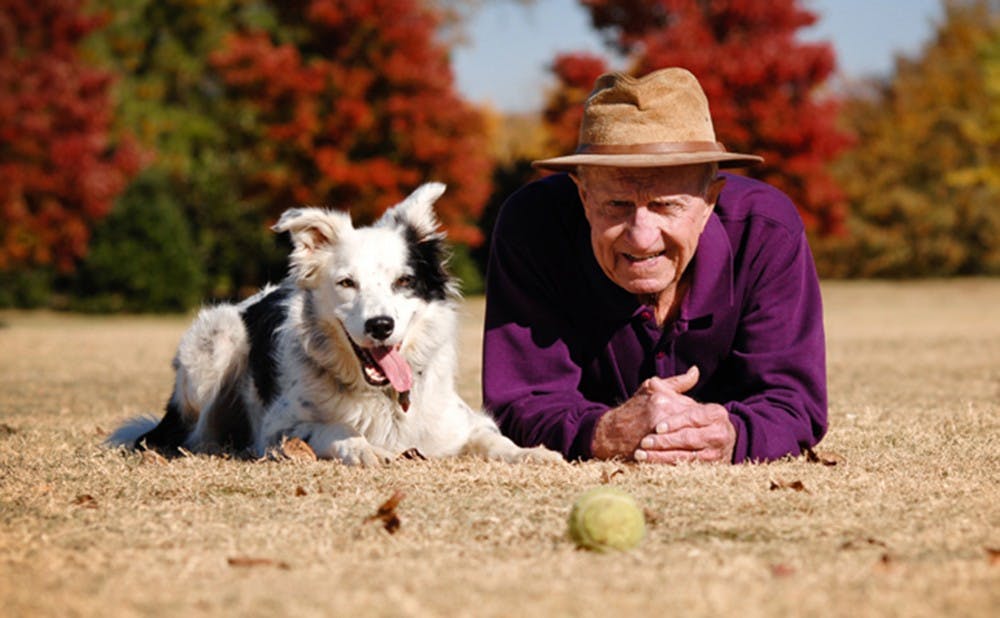The "smartest dog in the world" has captured the spotlight of 60 Minutes and the centerpiece of research by a Duke graduate.
Chaser, a 10-year-old Border Collie, recognizes the names of over 1,000 objects—making her vocabulary range three times that of an average two-year old human. John Pilley, Chaser's owner and professor of psychology at Wofford College, spent four to five hours per day extensively teaching Chaser—following research on a dog in Germany who understood the names of over 200 objects. Pilley and Alliston Reid, Graduate School '81 and Reeves Family Professor of Psychology at Wofford, determined that Chaser could learn names using associative learning techniques and also differentiate between these names and orders to fetch them.
“Starting off, Chaser was probably no more intelligent than other border collies,” Reid said. "She learned how to learn, which is more a characteristic of her experience than her genetics or her natural intelligence.”
Chaser's ability to learn and remember the names of these proper nouns reveals her capacity to relate both auditory and visual stimuli through an efficient memory system and extensive vocabulary. She also knows the difference between nouns and verbs and can perform a task that Dr. Reid calls learning by exclusion. During this task, an object, whose name Chaser does not know, is placed in a pile of objects with familiar names. When asked to retrieve the object with the foreign name, Chaser can rule out the objects she recognizes, successfully match the unknown object with the unknown name and retrieve it.
“The experiments we published demonstrate that Chaser understands a lot more than we thought," Reid said. "That’s helped create some experimental designs that other people can go back and replicate with their own dogs.”
Pilley and Reid's study aims to understand both how extensive training can impact a dog’s vocabulary and what dogs actually understand when humans communicate with them through language.
“I think it’s really useful for all of us to get some idea of how much a dog understands when we talk to them," Reid said. "Every dog owner has wondered that."
He added that the study can shed light on the implications of human language as well.
"When you ask a nonhuman to respond to these sounds, we have to ask, what is a word?" Reid said. "They’re just sounds that achieve meaning through practice, and Chaser learned through practice.”
Although Chaser exhibits remarkable abilities, research is beginning to show that canine intelligence and cognition is not unique to her.
“Humans and animals have lots of cognitive abilities, including actual reason, which has not been tested in the realm of language,” Reid said. “It’d be very useful to find out what sort of reasoning a dog can do.”
Get The Chronicle straight to your inbox
Signup for our weekly newsletter. Cancel at any time.

